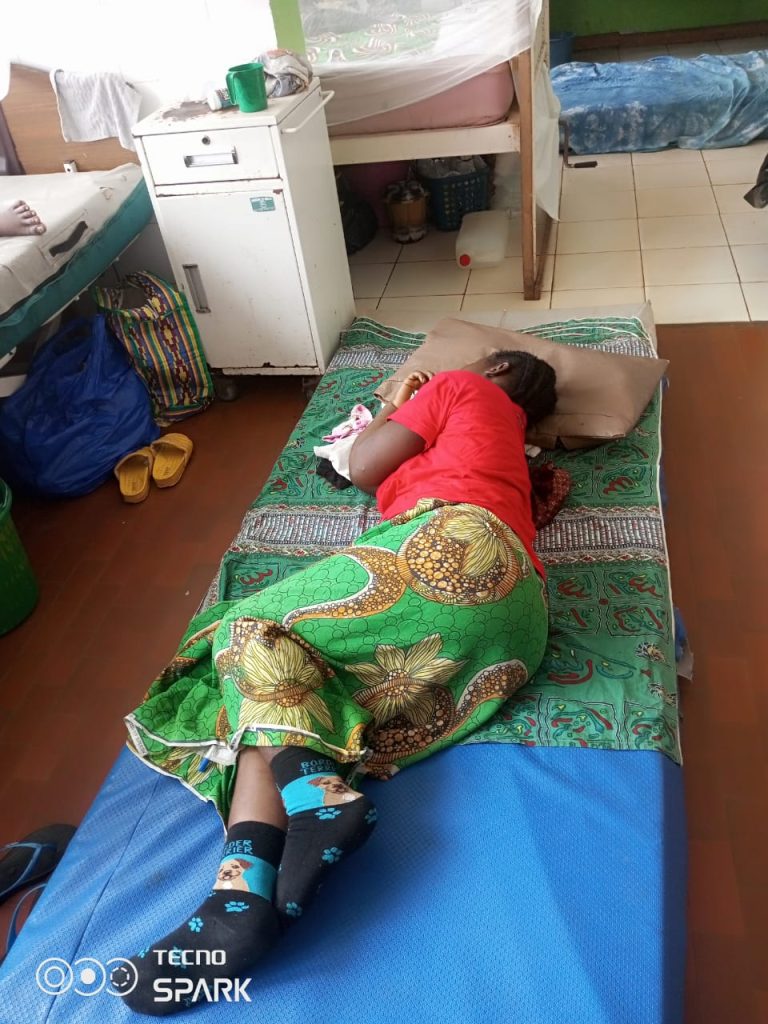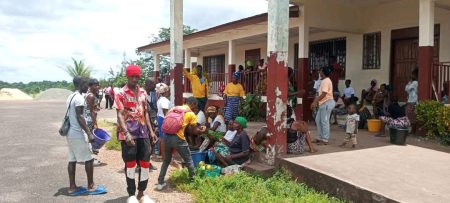The JJ Dossen Hospital, a key referral center in southeastern Liberia, is grappling with a critical bed capacity crisis, primarily due to a swelling patient influx. As an essential healthcare provider for patients from neighboring counties such as Grand Kru and River Gee, as well as communities in the Ivory Coast, the hospital has been strained by its limited resources. Both the Liberian government and non-governmental organizations, notably Partner In Health (PIH) Liberia, have historically provided essential support. However, the recent surge in patients has overwhelmed the capacity, particularly in crucial departments. Hospital administrators have expressed distress over the situation, which has led to uncomfortable and unsafe conditions, such as having pregnant women placed on the floor for lack of adequate beds.
Julia Natt Doe, one of the hospital administrators, underscored the seriousness of the situation while addressing reporters. She revealed that the major wards—obstetrics, medical, surgical, emergency, and pediatric—are grappling with overcrowding, forcing them to accommodate far beyond their intended limits. The obstetrics ward, specifically designed for 23 patients, has seen occupancy rise to between 40 and 45 patients, resulting in mothers being left to rest on the floor shortly after childbirth. This alarming situation puts both mothers and newborns at risk of health complications and fundamentally compromises the hospital’s commitment to quality healthcare services.
In addition to overcrowding, Madam Doe highlighted the hospital’s pressing need for a new annex to alleviate bed shortages. She pointed out that there is available land for expansion but emphasized that the hospital has yet to receive adequate governmental and partner interventions to address these challenges. Despite significant improvements made since the post-war era—such as the introduction of specialized equipment and the retention of specialists—current pressures threaten to undermine the quality of care available. The merging of medical and surgical wards further exemplifies the degree of strain the facility faces, posing serious concerns regarding patient safety and healthcare delivery.
The contribution of organizations like Partner In Health-Liberia has been vital in the ongoing attempt to enhance healthcare services within the region. PIH has notably collaborated with the Maryland County Health Team and the National Blood Safety Council to address critical needs within the health system. Recently, they launched a three-day blood donation initiative aimed at providing life-saving transfusions for various patient groups, from expectant mothers to trauma victims. Sam Zota, PIH-Liberia communication specialist, emphasized the crucial role of voluntary blood donations, articulating that such efforts not only support immediate healthcare requirements but also foster a sense of hope within the community.
This donation drive, which commenced on October 18 and will conclude on October 22, serves to bolster the healthcare infrastructure at a time when the county faces significant challenges. Numerous venues—including the Martha Tubman Stadium, JJ Dossen Hospital compound, and Harper City Hall—serve as donation sites. Zota pointed out that every day, countless lives within Maryland County hinge on the availability of blood for urgent medical interventions, highlighting the meaningful impact of donations amidst the current healthcare crisis.
In conclusion, JJ Dossen Hospital’s plight serves as a poignant reminder of the broader challenges facing healthcare systems in regions struggling with resource limitations. Despite receiving substantial support from government and NGOs, the hospital’s dire bed capacity issues remain a barrier to providing quality health services. The collaboration between local hospitals and organizations such as Partner In Health is crucial for improving patient care. Still, immediate actions are required to address the systemic issues contributing to overcrowding. Investments in infrastructure, staff training, and further partnerships are essential steps needed to ensure that healthcare in the region can meet the needs of an increasing patient population.














